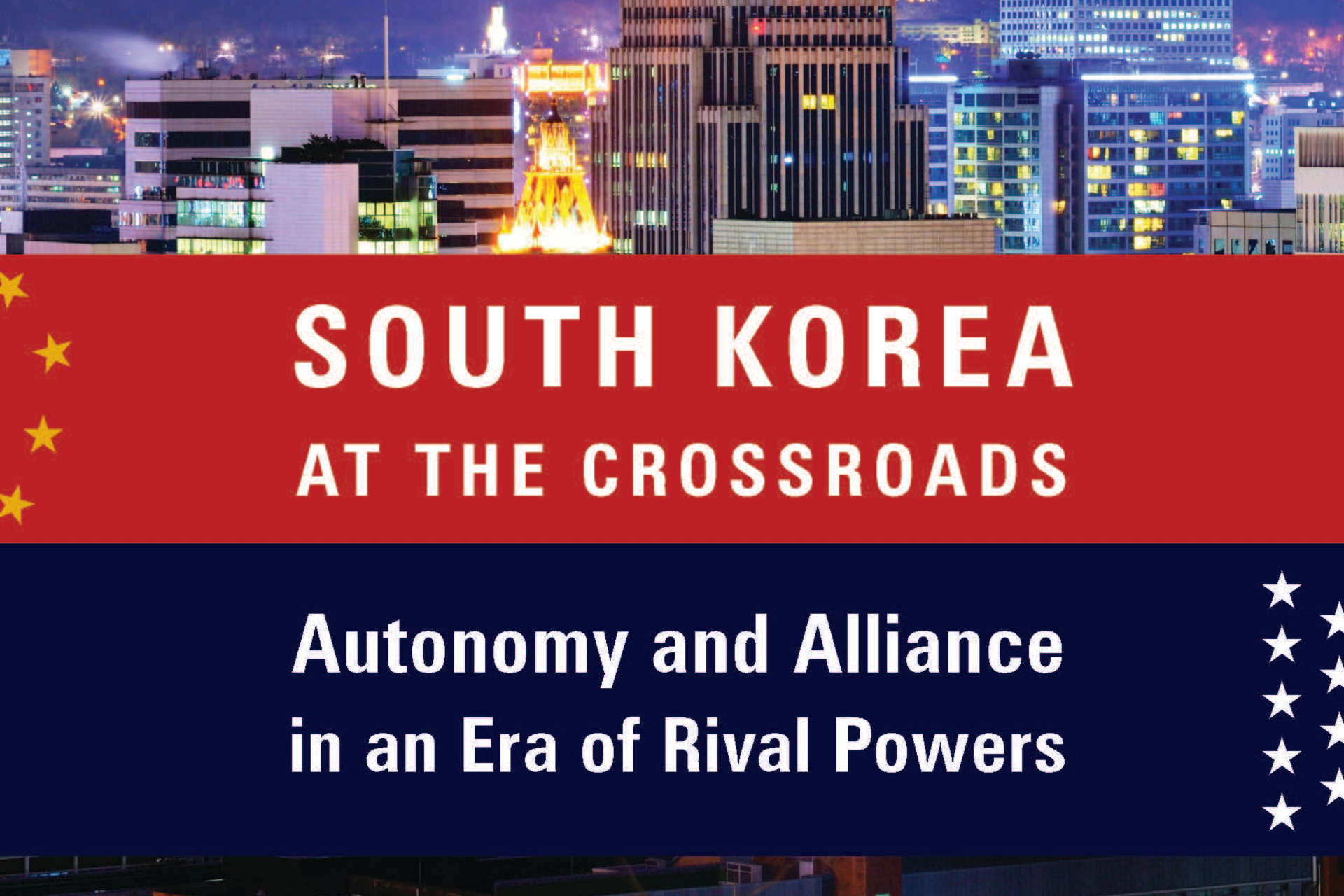U.S. Alliance Remains South Korea’s Strongest Security Guarantee, Argues Scott Snyder in New Book

By experts and staff
- Published
January 2, 2018—“South Korea’s only viable strategic option for the foreseeable future is continued cultivation and strengthening of the alliance with the United States,” argues Scott A. Snyder in South Korea at the Crossroads: Autonomy and Alliance in an Era of Rival Powers.
“Despite China’s rising economic and political influence in East Asia, the United States remains the country that is most capable, committed, and strategically aligned with South Korea,” writes Snyder, Council on Foreign Relations (CFR) senior fellow for Korea studies and director of the program on U.S.-Korea Policy.
“A major factor influencing South Korea’s strategic choices is the relative balance of power between China and the United States,” he writes. “Korea’s historic preference has been to accommodate the country with the greatest influence on Korea while seeking to preserve Korea’s security and sovereignty.”
He notes that after China surpassed the United States as South Korea’s number one economic partner in 2004, the “divergence between South Korea’s economic opportunities with China and the security alliance with the United States began to draw attention in South Korean policy circles.”
According to Snyder, the United States “shares democratic values with South Korea” and “remains more powerful than China and continues to guarantee an open and liberal global order under which South Korea as a leading exporter has thrived.”
Snyder contends that as long as U.S. defense commitments remain credible and the United States remains the most powerful actor in global affairs, “the U.S.-ROK [Republic of Korea] alliance will remain the anchor and platform that enables South Korea’s pursuit of its fundamental strategic objectives” of security, prosperity, and national unification.
For more information, please visit cfr.org/SouthKoreaAtCrossroads. To interview Snyder, please contact the Global Communications and Media Relations team at 212.434.9888 or [email protected]
Praise for South Korea at the Crossroads:
“At a critical moment for the alliance, Scott A. Snyder has done it again—producing an important work that both provides insightful historical perspectives of the relationship and also advances our understanding of South Korean strategic decision-making. This latest contribution from Snyder will inform academics, policymakers, and those who follow the alliance in Washington, Seoul, and around the world.”—Mark Lippert, Former U.S. Ambassador to the Republic of Korea
“The dizzying developments on the Korean peninsula have assumed a central place in our national conversation as recent developments in both Pyongyang and Seoul remind us of the stakes in play for the United States in Asia. Scott Snyder, perhaps America’s premier Korean watcher, has written an indispensable book about how to chart a course for America and South Korea in the complex period ahead.”—Kurt M. Campbell, Chairman and CEO, The Asia Group
“South Korea at the Crossroads provides a lucid and expansive coverage of the major forces that have shaped and influenced South Korean diplomacy since its founding in 1948. Snyder emphasizes the contradictory forces that have shaped Seoul’s foreign policy through each administration, such as the pluses and minuses of geography, nationalism, and internationalism and the poles of autonomy and alliance. This volume will stand out as the best single-volume study on South Korean foreign policy.”—Chung Min Lee, Professor, Yonsei University